
Huesca: A Hidden Gem in the Heart of Aragón
Huesca, nestled in the heart of Aragón, is a city that offers a rich blend of history, culture, and natural beauty. With its origins dating back to Roman times, Huesca is a city where every corner tells a story. The ancient walls and narrow streets lead visitors on a journey through time, from the grandeur of its medieval cathedral to the serene beauty of its parks and gardens. One of the city's highlights is the Huesca Cathedral, a stunning example of Gothic architecture. The cathedral's intricate designs and towering spires are sure to captivate any visitor. Adjacent to the cathedral is the charming Plaza de la Catedral, a perfect spot to relax and soak in the city's ambiance. For nature enthusiasts, Huesca provides an excellent gateway to the nearby Pyrenees mountains. The region is ideal for hiking, skiing, and exploring picturesque villages like Aínsa and Alquézar. The Guara Natural Park, known for its canyons and cliffs, is also a must-visit for adventure seekers. Huesca is not just about history and nature; it also boasts a vibrant culinary scene. Local tapas bars and restaurants offer a taste of traditional Aragonese cuisine, with dishes like 'migas' and 'ternasco' that will delight your palate. The city's lively festivals, such as the San Lorenzo Festival in August, showcase the local culture and provide a festive atmosphere that's hard to resist.
Local tips in Huesca
- Visit the Huesca Cathedral early in the morning to avoid crowds and enjoy the serene atmosphere.
- Explore the local tapas bars for an authentic taste of Aragonese cuisine. Don't miss out on trying 'migas' and 'ternasco'.
- Plan a day trip to the nearby Pyrenees mountains for hiking, skiing, or simply enjoying the stunning landscapes.
- Attend the San Lorenzo Festival in August to experience the city's vibrant culture and festive spirit.
- Check out the Guara Natural Park for adventurous activities like canyoning and rock climbing.
Huesca: A Hidden Gem in the Heart of Aragón
Huesca, nestled in the heart of Aragón, is a city that offers a rich blend of history, culture, and natural beauty. With its origins dating back to Roman times, Huesca is a city where every corner tells a story. The ancient walls and narrow streets lead visitors on a journey through time, from the grandeur of its medieval cathedral to the serene beauty of its parks and gardens. One of the city's highlights is the Huesca Cathedral, a stunning example of Gothic architecture. The cathedral's intricate designs and towering spires are sure to captivate any visitor. Adjacent to the cathedral is the charming Plaza de la Catedral, a perfect spot to relax and soak in the city's ambiance. For nature enthusiasts, Huesca provides an excellent gateway to the nearby Pyrenees mountains. The region is ideal for hiking, skiing, and exploring picturesque villages like Aínsa and Alquézar. The Guara Natural Park, known for its canyons and cliffs, is also a must-visit for adventure seekers. Huesca is not just about history and nature; it also boasts a vibrant culinary scene. Local tapas bars and restaurants offer a taste of traditional Aragonese cuisine, with dishes like 'migas' and 'ternasco' that will delight your palate. The city's lively festivals, such as the San Lorenzo Festival in August, showcase the local culture and provide a festive atmosphere that's hard to resist.
When is the best time to go to Huesca?
Iconic landmarks you can’t miss
Loarre Castle
Explore the historic Loarre Castle, a stunning medieval fortress in Spain, offering breathtaking views and rich stories from the past.
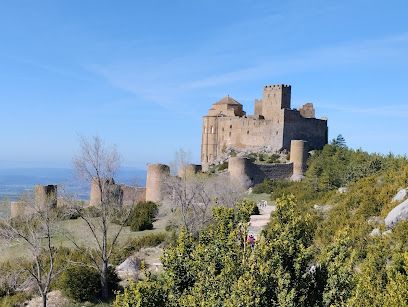
Parque Miguel Servet
Explore the lush landscapes and tranquil beauty of Parque Miguel Servet, a serene park in Huesca perfect for relaxation and family fun.
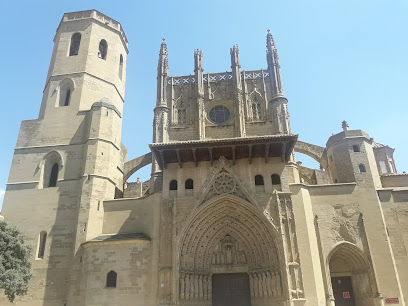
Catedral de Huesca
Discover the breathtaking Catedral de Huesca, a historical jewel showcasing stunning Gothic and Romanesque architecture amid scenic surroundings.
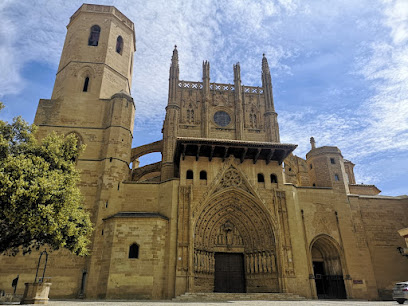
Abbey of San Pedro el Viejo
Explore the serene Abbey of San Pedro el Viejo, a historic monastery in Huesca, blending architectural beauty with a peaceful ambiance for an unforgettable experience.
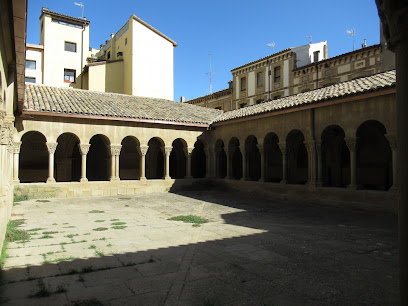
Palacio de Congresos de Huesca
Discover the modern architectural beauty and cultural vibrancy of Palacio de Congresos de Huesca, your gateway to events and experiences in Huesca, Spain.
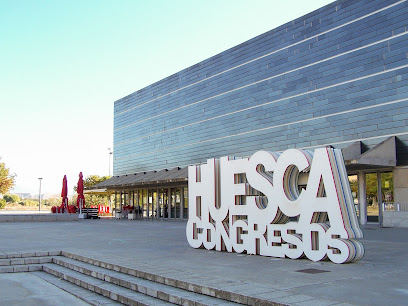
Olas Park
Discover Olas Park in Huesca: A vibrant playground and serene park perfect for family outings and leisurely exploration amidst nature's beauty.
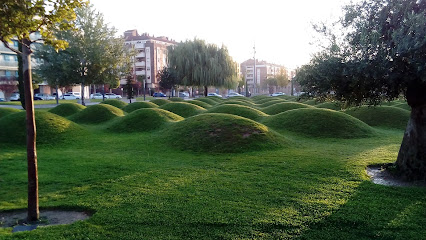
Huesca Museum
Explore the Huesca Museum: A cultural treasure trove showcasing the rich artistic and historical legacy of Huesca, Spain.
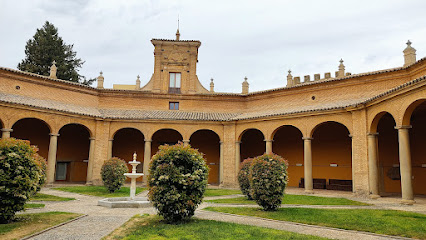
Oficina de turismo
Discover Huesca's rich history and vibrant culture at the Oficina de Turismo, your essential guide to exploring the region's hidden treasures.
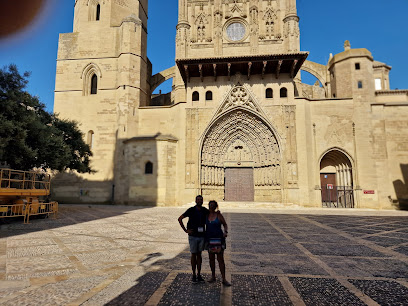
Plaza de Toros de Huesca
Discover the rich history and vibrant culture of Huesca at the iconic Plaza de Toros, a must-visit destination for an authentic Spanish experience.
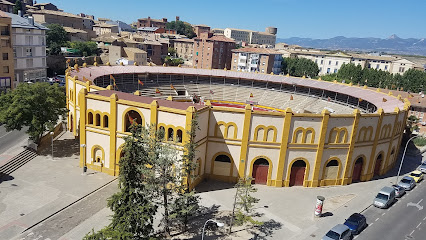
Castle Montearagón
Discover the historic Castle Montearagón, a stunning medieval fortress with breathtaking views and rich history in Huesca, Spain.
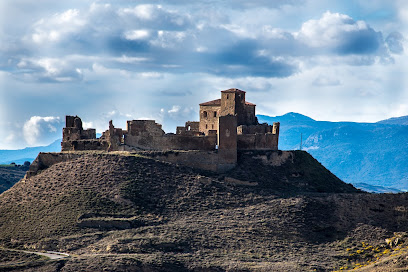
Parish Church of Saint Dominic and Saint Martin
Explore the breathtaking architecture and serene atmosphere of the Parish Church of Saint Dominic and Saint Martin in Huesca, a must-visit for cultural enthusiasts.
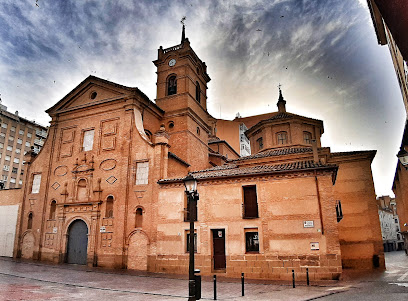
Area autocaravanas de Huesca
Discover the beauty of Huesca from a serene RV park, offering stunning landscapes and a perfect base for exploring the region's cultural treasures.
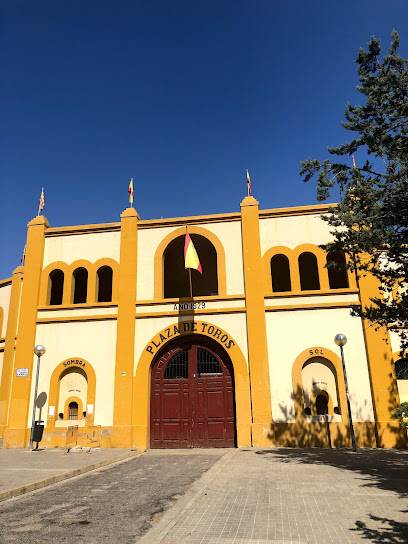
PaLaSaca Restaurante Vegetariano
Experience the vibrant flavors of Huesca at PaLaSaca, the premier vegetarian restaurant featuring fresh, local ingredients and creative dishes.
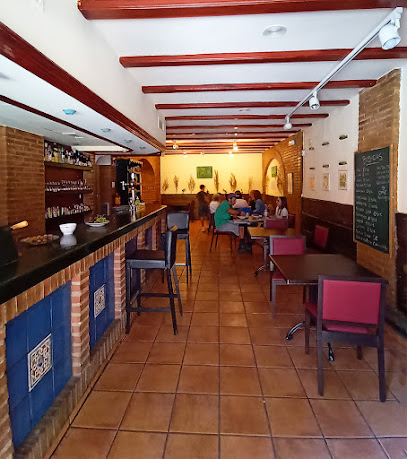
Muralla de Huesca
Explore the ancient walls of Muralla de Huesca, a captivating historical monument that tells the story of Huesca's rich heritage and offers breathtaking views.
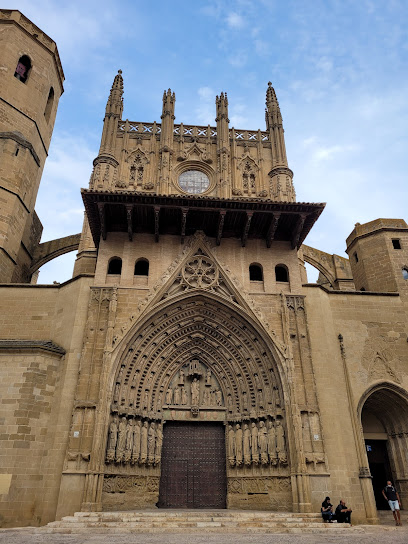
Estacion Huesca
Discover the charm of Huesca at Estacion Huesca, your gateway to the stunning landscapes and rich culture of Aragon.
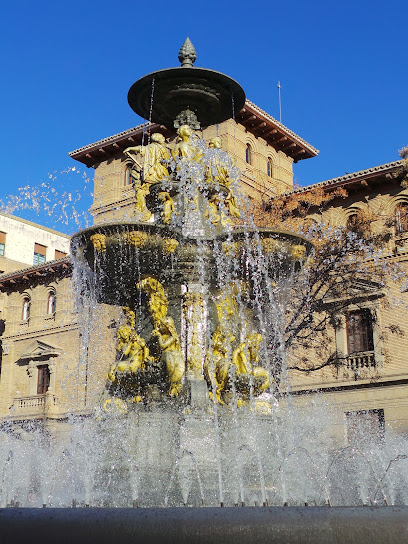
Unmissable attractions to see
Loarre Castle
Discover the enchanting Loarre Castle, a medieval fortress in Huesca, Spain, offering breathtaking views and rich historical significance.
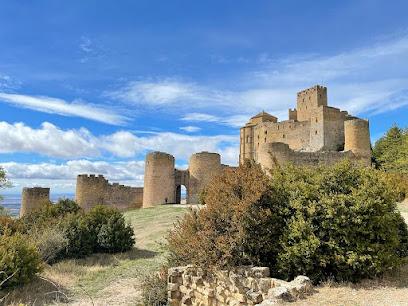
Parque Miguel Servet
Explore the serene beauty of Parque Miguel Servet, a tranquil park in Huesca perfect for relaxation, family outings, and community events.
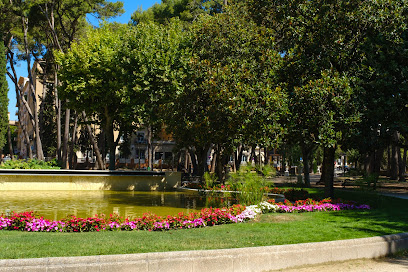
Catedral de Huesca
Discover the breathtaking beauty and rich history of the Catedral de Huesca, a stunning architectural gem in Spain's picturesque Huesca region.
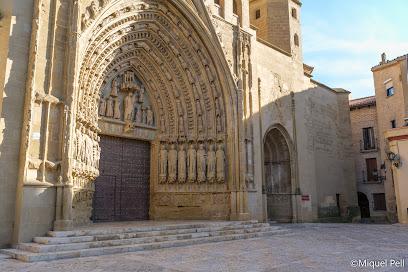
Mallos de Riglos
Explore the stunning rock formations of Mallos de Riglos, a must-visit natural preserve in Spain for adventure seekers and nature enthusiasts.
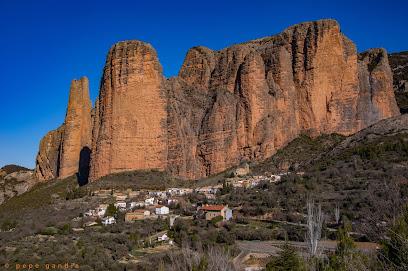
Abbey of San Pedro el Viejo
Explore the Abbey of San Pedro el Viejo, a historical gem in Huesca, rich in culture and architectural beauty, perfect for history lovers and tourists alike.
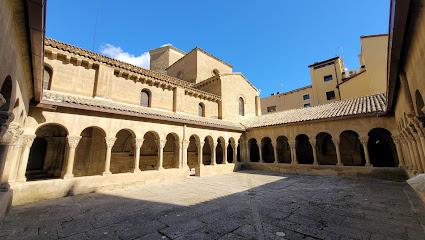
Parque natural de la Sierra y los Cañones de Guara
Explore the breathtaking landscapes and adventure sports of Parque Natural de la Sierra y los Cañones de Guara in Alquézar, a nature lover's dream destination.
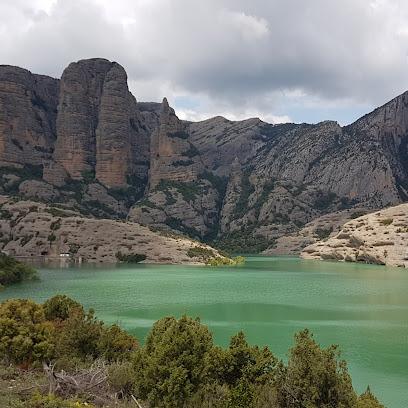
Olas Park
Explore Olas Park in Huesca, a family-friendly park featuring playgrounds, lush greenery, and serene picnic spots for a perfect day outdoors.
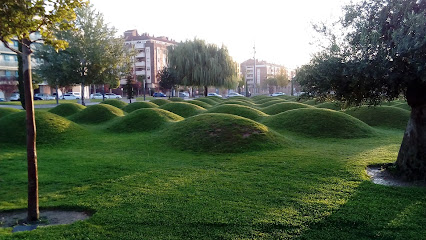
Huesca Museum
Explore the Huesca Museum, a vibrant cultural center showcasing the rich history and artistic heritage of the Huesca region in Spain.
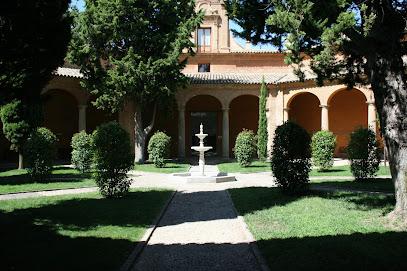
Casino de Huesca
Discover the excitement of Casino de Huesca—where gaming, entertainment, and stunning architecture meet in the heart of Spain.
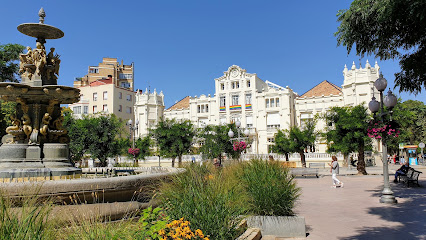
Universidad Huesca Park
Discover tranquility and natural beauty at Universidad Huesca Park, a perfect spot for relaxation and leisure in the heart of Huesca.
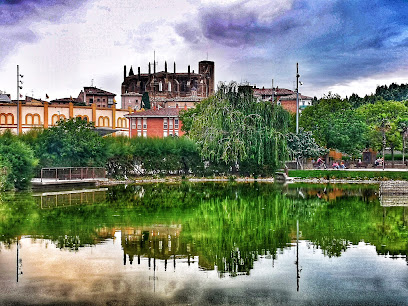
Plaza de Toros de Huesca
Discover the Plaza de Toros de Huesca, a historical bullring offering insights into Spanish culture and vibrant local festivities.
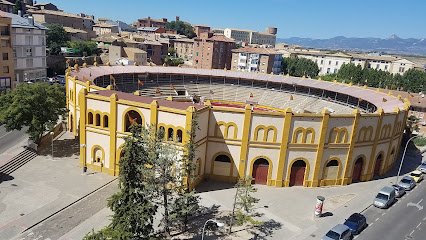
Castle Montearagón
Explore the historic Castle Montearagón, a stunning fortress offering breathtaking views and a rich tapestry of history in the heart of Huesca, Spain.
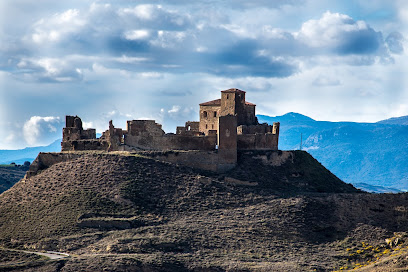
Fuentes De Marcelo
Discover the breathtaking beauty and diverse wildlife of Fuentes De Marcelo, a serene nature preserve in Huesca, perfect for outdoor enthusiasts and families.
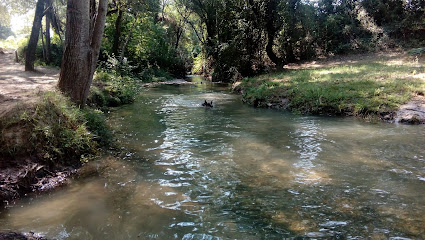
Parque Padre Luis Querbes
Experience the tranquility of Parque Padre Luis Querbes in Huesca, a stunning park perfect for relaxation and nature walks amidst beautiful greenery.
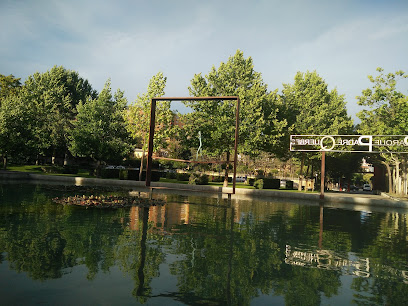
Salto de Roldán
Experience the breathtaking natural beauty and legendary tales of Salto de Roldán in Huesca, Spain, a must-visit attraction for every traveler.
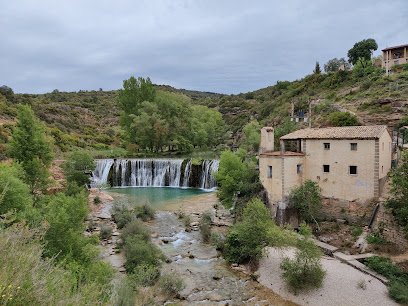
Essential places to dine
Bar Comomelocomo
Discover authentic Spanish tapas at Bar Comomelocomo in Huesca – where flavor meets tradition in a vibrant setting.
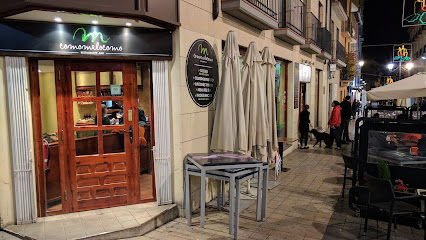
Restaurante Flor de Huesca
Discover the authentic taste of Mediterranean cuisine at Restaurante Flor de Huesca – where every meal tells a story.
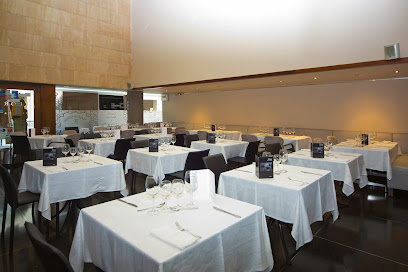
Restaurante la Factoría
Experience the essence of Mediterranean cuisine at Restaurante la Factoría in Huesca - where flavor meets tradition in a cozy setting.
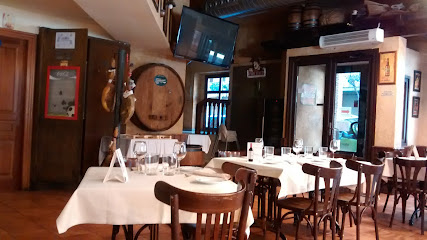
DOÑA TABERNA
Discover the heart of Huesca through exquisite traditional cuisine at Doña Taberna - where every meal tells a story.
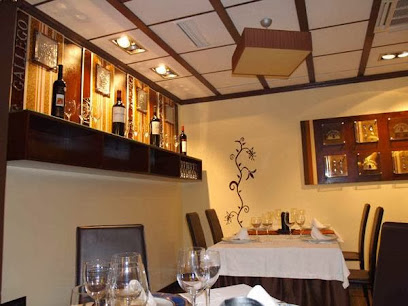
Restaurante Bar Álvaro
Discover the vibrant flavors of Spain at Restaurante Bar Álvaro in Huesca – where grilled delights meet a cozy atmosphere.
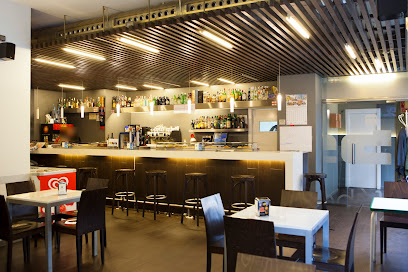
La Vicaría Resto Bar
Discover authentic Spanish flavors at La Vicaría Resto Bar in Huesca – where every meal is a celebration of local cuisine.
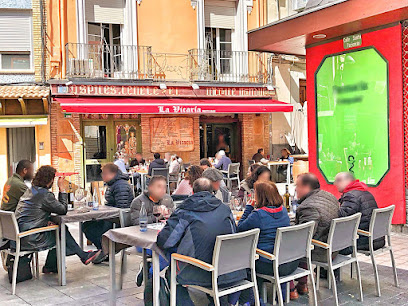
Restaurante da Vinci
Experience authentic Spanish tapas at Restaurante da Vinci in Huesca—where every dish tells a story of flavor and tradition.
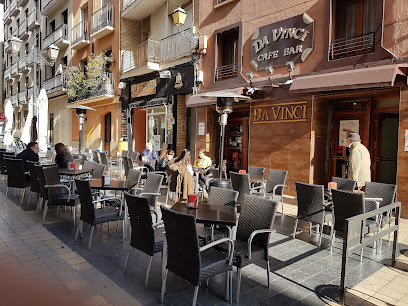
Restaurante Tatau
Experience exquisite fine dining at Restaurante Tatau in Huesca – where local flavors meet innovative culinary artistry.
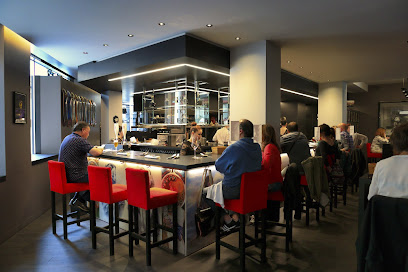
Restaurante Hervi Huesca
Discover authentic Spanish cuisine at Restaurante Hervi in Huesca, where delicious flavors meet warm hospitality in an inviting atmosphere.
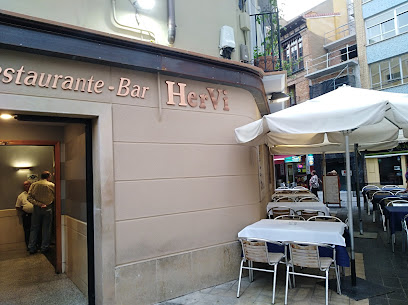
Restaurante El Origen
Savor authentic Spanish cuisine at Restaurante El Origen in Huesca - where tradition meets taste in every bite.
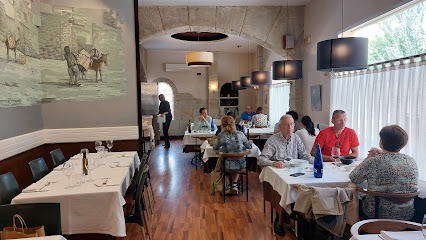
Taberna El Fosko Huesca
Discover authentic Spanish cuisine at Taberna El Fosko in Huesca – where tradition meets taste in every dish.
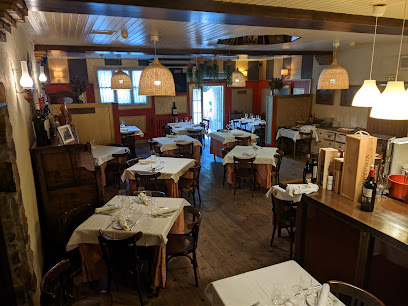
Restaurante en Huesca Antillón
Discover the authentic flavors of Spain at Restaurante en Huesca Antillón - where every meal is a celebration of local culinary traditions.
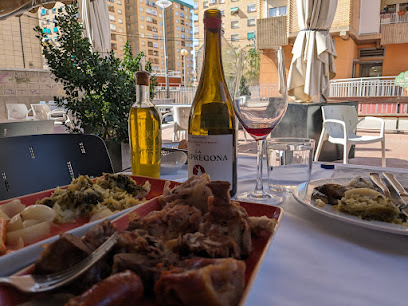
Restaurante - Asador L'Alifara
Discover authentic mutton barbecue at Restaurante - Asador L'Alifara in Huesca – where tradition meets taste.
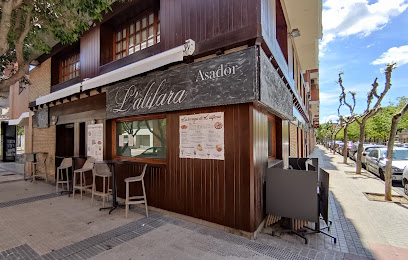
Fontao
Experience the authentic flavors of Galicia at Fontao - A must-visit Mediterranean restaurant in Huesca.
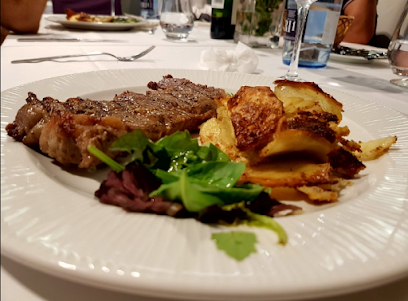
La Goyosa Restaurante
Experience authentic Mediterranean flavors at La Goyosa Restaurante in Huesca – where tradition meets culinary excellence.
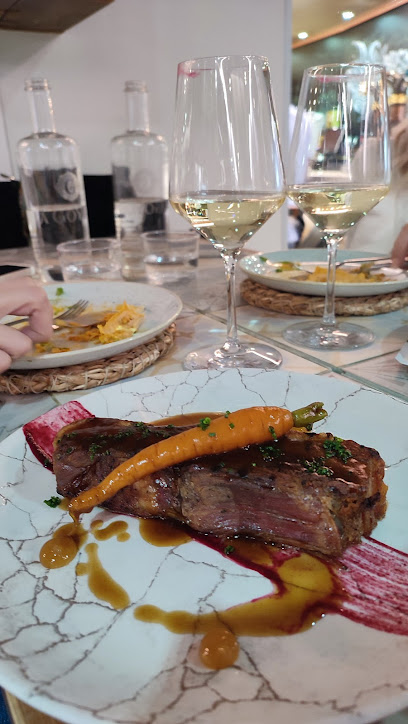
Markets, malls and hidden boutiques
Perfumarte Huesca
Explore Perfumarte Huesca for an exquisite selection of perfumes, beauty products, and a unique shopping experience in the heart of Huesca.
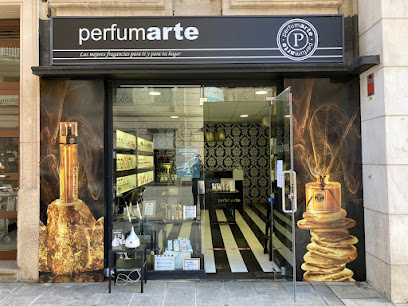
Bookstore Santos Ochoa Huesca
Explore Santos Ochoa Bookstore in Huesca for a unique blend of literature, art supplies, and local culture that captivates tourists and residents alike.
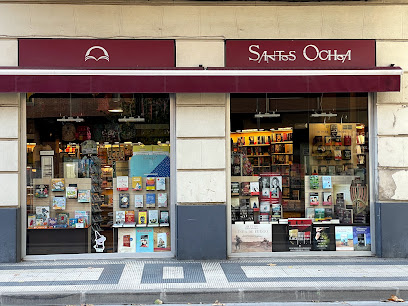
GAME
Explore GAME in Huesca: Your ultimate destination for video games, collectibles, and gaming accessories in a vibrant atmosphere.

MANGO
Explore the latest in women's fashion at MANGO in Huesca, where contemporary style meets high-quality craftsmanship.
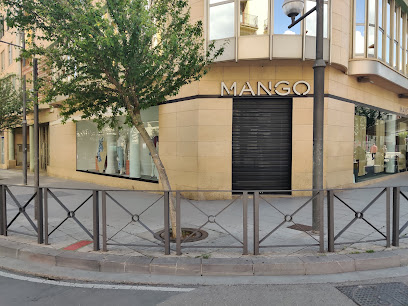
Gran Bazar Oriental
Gran Bazar Oriental in Huesca: A vibrant marketplace brimming with local crafts, delicious cuisine, and cultural experiences.
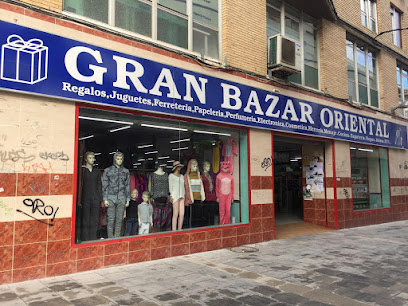
Tienda de deporte Huesca Décimas
Explore Huesca's finest sportswear store, offering a vast selection of athletic apparel and trendy fashion accessories for the whole family.
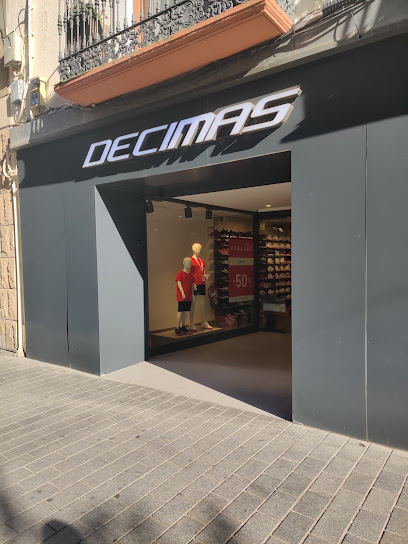
Marramiau
Discover unique handcrafted gifts at Marramiau, a charming shop in Huesca that celebrates local artistry and craftsmanship.
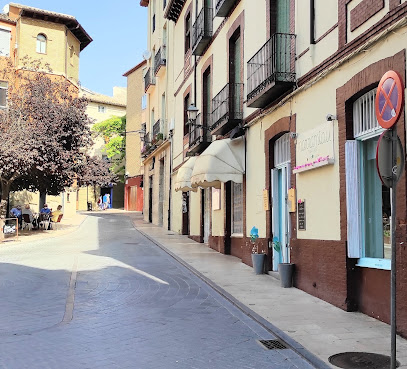
Tienda Oficial Sociedad Deportiva Huesca
Explore Tienda Oficial Sociedad Deportiva Huesca for premium sportswear and team memorabilia in the heart of Huesca, perfect for fans and tourists.
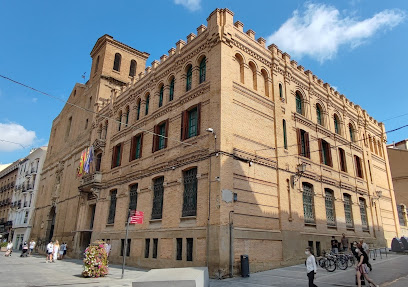
Pilar Prieto
Discover stylish women's clothing and chic accessories at Pilar Prieto in Huesca, a fashion paradise for every style enthusiast.
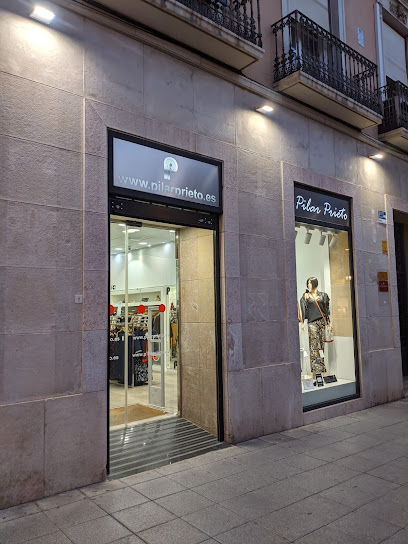
Super Bazar Oriente
Explore Super Bazar Oriente in Huesca for unique local treasures, handcrafted souvenirs, and a taste of regional culture.
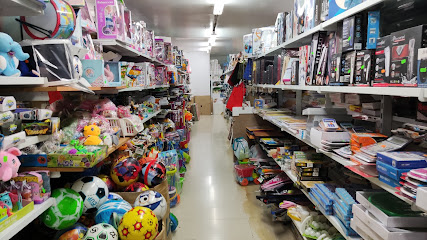
Artica Tiendas
Discover Artica Tiendas in Huesca: a furniture store that blends style, quality, and functionality for your home decor needs.
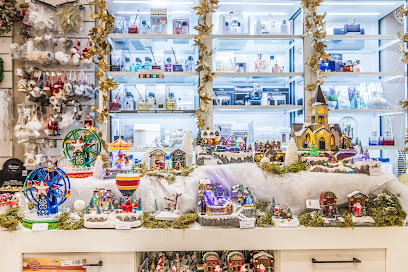
Esencia
Discover the charm of Huesca at Esencia, your go-to gift shop for unique candles, cosmetics, and perfumes that capture the essence of the region.
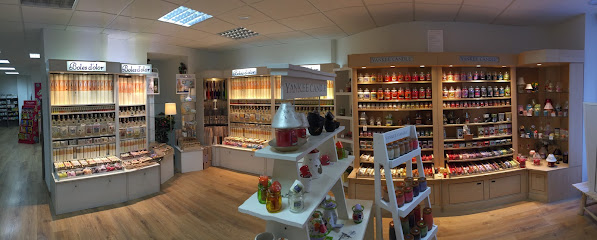
BAMBÄLA SHOP
Explore the unique fashion of Huesca at BAMBÄLA SHOP, where local styles meet contemporary elegance in a vibrant dress store.
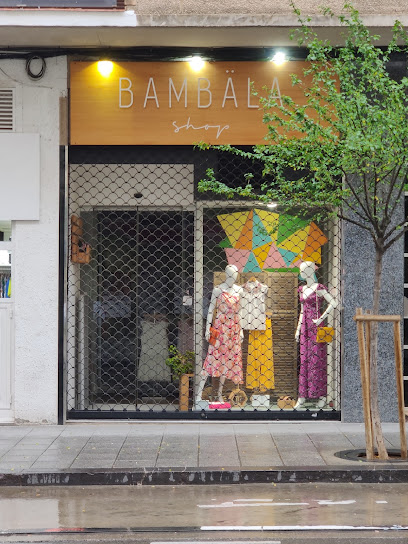
MÍMATE ATELIER · Bisutería y complementos.
Explore the artistic flair of Huesca at MÍMATE ATELIER, where handmade costume jewelry and accessories become cherished keepsakes.

Unyker
Experience the essence of Huesca's fashion at Unyker, where unique styles and local craftsmanship come together in a vibrant clothing store.
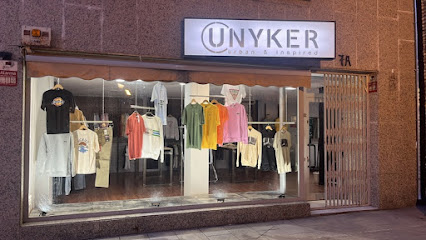
Essential bars & hidden hideouts
Bar Comomelocomo
Experience the vibrant atmosphere and delightful tapas at Bar Comomelocomo in Huesca, a must-visit destination for food lovers.
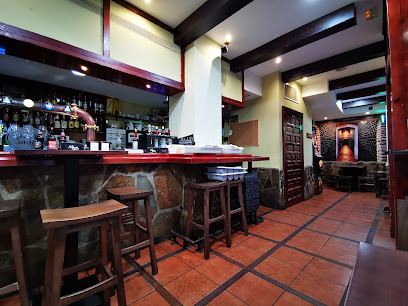
Restaurante Bar Álvaro
Experience the flavors of Huesca at Restaurante Bar Álvaro, where grilled dishes and tapas await in a vibrant setting.
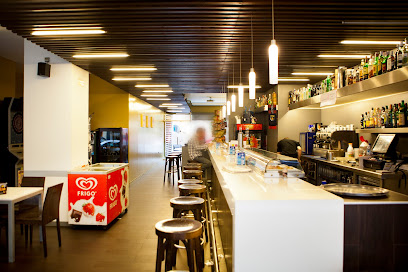
Pub La Abadía de Boston
Discover the lively atmosphere of Pub La Abadía de Boston, where local flavors meet cozy comfort in the heart of Huesca.
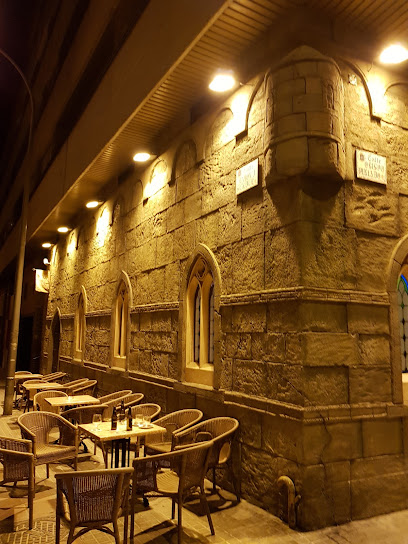
Bar El Punto
Discover Bar El Punto in Huesca: The perfect breakfast spot and coffee haven for travelers seeking local flavor and a cozy atmosphere.
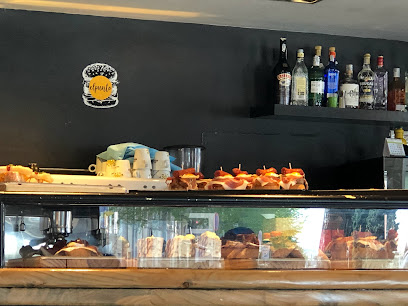
Mi Bar
Discover the vibrant culinary scene at Mi Bar, where authentic tapas and a lively atmosphere await in the heart of Huesca.
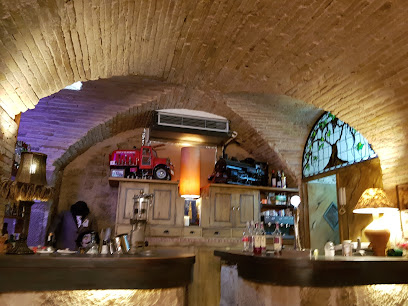
Bar Brasil
Discover the flavors of Huesca at Bar Brasil, where delicious tapas and a cozy atmosphere await every visitor.
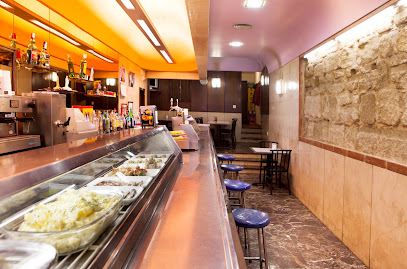
Bar Hifer
Discover the authentic taste of Huesca at Bar Hifer, a charming grill bar known for its delicious grilled dishes and warm hospitality.
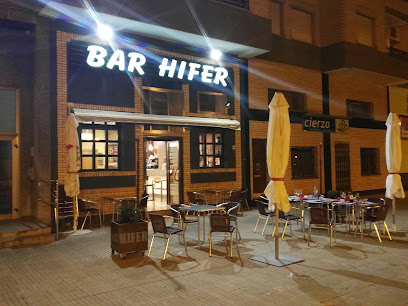
Woodstock Rock Cafe
Discover the lively spirit of Huesca at Woodstock Rock Cafe, a vibrant pub with live music, delicious drinks, and a rock 'n' roll atmosphere.
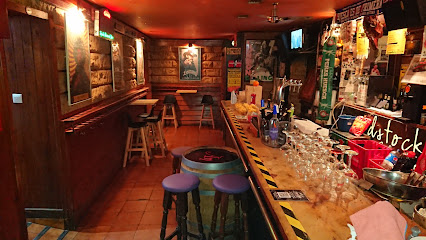
Bar Rugaca
Experience the local charm at Bar Rugaca, a cozy bar and café in Huesca, perfect for drinks, tapas, and relaxation.
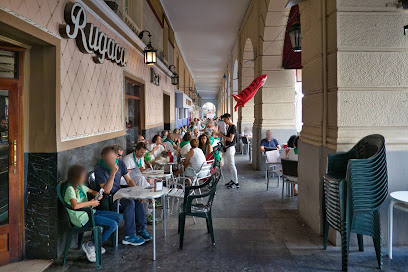
Peñista
Discover the lively ambiance of Peñista, a charming bar in Huesca offering affordable drinks and a welcoming atmosphere for all.
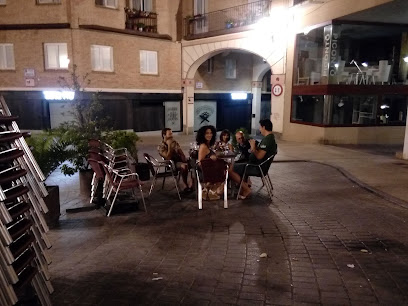
Bar La Fábrica
Experience the vibrant atmosphere and local flavors at Bar La Fábrica in Huesca, the perfect spot for tourists to unwind and indulge.
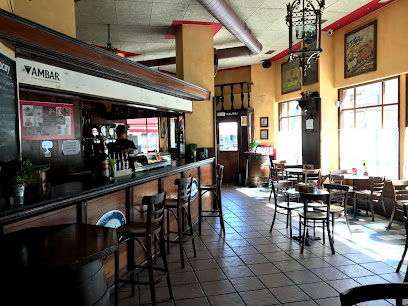
Bar Week Cheers
Discover the lively atmosphere and extensive beverage selection at Bar Week Cheers, Huesca's ultimate social hub for tourists and locals alike.
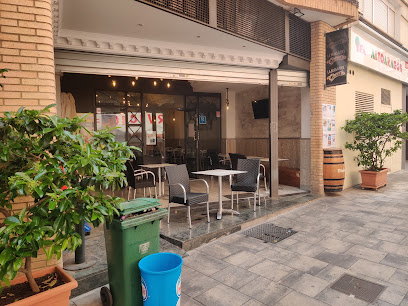
Connemara Irish Pub
Discover the vibrant atmosphere of Connemara Irish Pub in Huesca, where great drinks and live music create a perfect social experience.
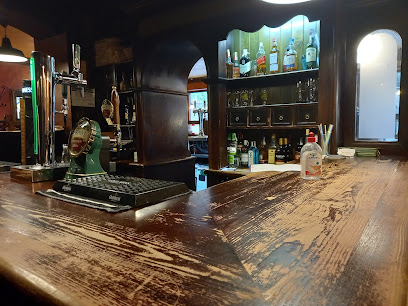
Bar Loreto
Experience the authentic spirit of Huesca at Bar Loreto, a local favorite for tapas, drinks, and warm hospitality in a vibrant atmosphere.
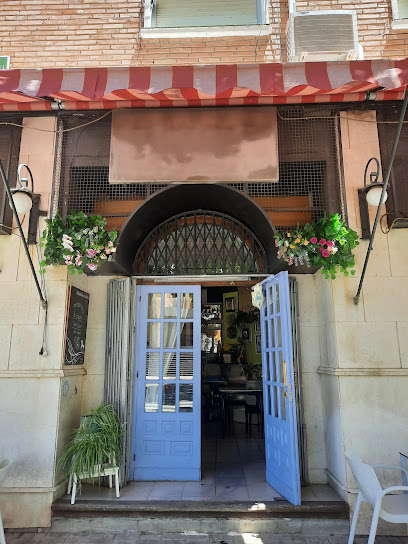
Local Phrases
-
- HelloHola
[oh-lah] - GoodbyeAdiós
[ah-dee-ohs] - YesSí
[see] - NoNo
[noh] - Please/You're welcomePor favor/De nada
[por fah-bohr/de nah-dah] - Thank youGracias
[grah-thyahs] - Excuse me/SorryPerdón/Lo siento
[pehr-dohn/loh syen-toh] - How are you?¿Cómo estás?
[koh-moh ehs-tahs] - Fine. And you?Bien. ¿Y tú?
[byen. ee too] - Do you speak English?¿Hablas inglés?
[ah-blahs een-glehs] - I don't understandNo entiendo
[noh ehn-tyen-doh]
- HelloHola
-
- I'd like to see the menu, pleaseMe gustaría ver el menú, por favor
[meh goos-tah-ree-ah behr ehl meh-noo, por fah-bohr] - I don't eat meatNo como carne
[noh koh-moh kahr-neh] - Cheers!¡Salud!
[sah-lood] - I would like to pay, pleaseMe gustaría pagar, por favor
[meh goos-tah-ree-ah pah-gahr, por fah-bohr]
- I'd like to see the menu, pleaseMe gustaría ver el menú, por favor
-
- Help!¡Ayuda!
[ah-yoo-dah] - Go away!¡Vete!
[veh-teh] - Call the Police!¡Llama a la Policía!
[yah-mah ah lah poh-lee-see-ah] - Call a doctor!¡Llama a un médico!
[yah-mah ah oon meh-dee-koh] - I'm lostEstoy perdido
[ehs-toy pehr-dee-doh] - I'm illEstoy enfermo
[ehs-toy ehn-fehr-moh]
- Help!¡Ayuda!
-
- I'd like to buy...Me gustaría comprar...
[meh goos-tah-ree-ah kohm-prahr...] - I'm just lookingSolo estoy mirando
[soh-loh ehs-toy mee-rahn-doh] - How much is it?¿Cuánto cuesta?
[kwan-toh kwehs-tah] - That's too expensiveEsto es demasiado caro
[ehs-toh ehs deh-mah-syah-doh kah-ro] - Can you lower the price?¿Puedes bajar el precio?
[pweh-dehs bah-hahr ehl preh-thyo]
- I'd like to buy...Me gustaría comprar...
-
- What time is it?¿Qué hora es?
[keh oh-rah ehs] - It's one o'clockEs la una en punto
[ehs lah oo-nah ehn poon-toh] - Half past (10)Y media (10)
[ee meh-dee-ah (deez)] - MorningMañana
[mah-nyah-nah] - AfternoonTarde
[tahr-deh] - EveningNoche
[noh-cheh] - YesterdayAyer
[ah-yehr] - TodayHoy
[oy] - TomorrowMañana
[mah-nyah-nah] - 1Uno
[oo-noh] - 2Dos
[dohs] - 3Tres
[trehs] - 4Cuatro
[kwah-troh] - 5Cinco
[theen-koh] - 6Seis
[says] - 7Siete
[syeh-teh] - 8Ocho
[oh-choh] - 9Nueve
[nweh-veh] - 10Diez
[dyeth]
- What time is it?¿Qué hora es?
-
- Where's a/the...?¿Dónde está...?
[dohn-deh ehs-tah] - What's the address?¿Cuál es la dirección?
[kwal ehs lah dee-rehk-thyon] - Can you show me (on the map)?¿Puedes mostrarme (en el mapa)?
[pweh-dehs mohs-trar-meh (ehn ehl mah-pah)] - When's the next (bus)?¿Cuándo es el próximo (autobús)?
[kwan-doh ehs ehl proh-ksee-moh (ow-toh-boos)] - A ticket (to ....)Un billete (a ...)
[oon bee-yeh-teh (ah ...)]
- Where's a/the...?¿Dónde está...?
History of Huesca
-
Huesca's history dates back to the Iberian era, when it was known as Bolskan. The city was an important settlement for the Iberian tribe of the Ilergetes. With the Roman conquest in the 1st century BC, it was renamed Osca and became a significant Roman municipality, complete with its own mint for coinage.
-
Following the fall of the Western Roman Empire, Huesca came under Visigothic control. The 8th century saw the arrival of the Moors, who renamed the city Wasqa. Under Moorish rule, Huesca flourished as an important cultural and economic center in the region of Al-Andalus.
-
In 1096, King Sancho Ramirez of Aragon captured Huesca in a decisive battle during the Reconquista. This victory was pivotal in the expansion of the Kingdom of Aragon. Huesca subsequently became a key political and cultural hub, with the establishment of the University of Huesca in 1354, one of the oldest universities in Spain.
-
During the Middle Ages and Renaissance, Huesca continued to grow and prosper. The construction of the Huesca Cathedral, a stunning example of Gothic architecture, began in the 13th century and was completed in the 16th century. The city also saw the rise of various noble families and the construction of numerous palaces and mansions.
-
The early 18th century was marked by the War of Spanish Succession. Huesca, like much of Aragon, was embroiled in the conflict between the supporters of the Habsburgs and the Bourbons. The city's strategic location made it a significant military target, leading to several battles and skirmishes in the surrounding areas.
-
In the 20th century, Huesca experienced significant changes, including the turmoil of the Spanish Civil War from 1936 to 1939. The city was a focal point of conflict between Nationalist and Republican forces, leading to extensive damage and loss of life. Post-war, Huesca underwent reconstruction and modernization, aligning itself with Spain's broader economic development.
-
In recent decades, Huesca has seen a revival in its cultural and historical heritage. Festivals such as the Fiesta de San Lorenzo, celebrated every August, draw thousands of visitors. The city boasts numerous museums, galleries, and cultural events, celebrating its rich history and vibrant contemporary culture.
Huesca Essentials
-
Huesca is located in northeastern Spain, within the autonomous community of Aragon. The nearest major airport is Zaragoza Airport, approximately 75 kilometers away. From Zaragoza, you can take a train or bus to Huesca, with the journey typically taking around 1 hour. Alternatively, you can fly into Barcelona-El Prat Airport and then take a train or bus, which will take around 3 to 4 hours. For those driving, Huesca is well-connected by major highways.
-
Huesca is a compact city, and many of its attractions are within walking distance. For longer trips within the city or to nearby locations, local buses are available and are reasonably priced. Taxis are also readily available and can be hailed on the street or booked via phone. Car rental services are available for those who prefer to explore the surrounding areas at their own pace.
-
The official currency in Huesca, as in the rest of Spain, is the Euro (EUR). Credit and debit cards are widely accepted in hotels, restaurants, and shops. However, it is advisable to carry some cash for smaller establishments and rural areas. ATMs are plentiful in Huesca, and most accept international cards.
-
Huesca is generally a safe city for tourists. However, as with any travel destination, it is advisable to take standard precautions. Avoid walking alone at night in unfamiliar areas and be mindful of your belongings in crowded places. There are no specific high-crime areas targeting tourists, but it's always best to stay vigilant.
-
In case of emergency, dial 112 for immediate assistance. Huesca has a local police station and several medical facilities. It is recommended to have travel insurance that covers medical emergencies. For minor health issues, there are pharmacies throughout the city where you can purchase over-the-counter medications.
-
Fashion: Do dress modestly, especially when visiting religious sites. Avoid overly revealing clothing. Religion: Do respect local customs and traditions. When entering churches, it is customary to remain quiet and respectful. Public Transport: Do be respectful and give up your seat to elderly passengers. Don't eat or drink on public transport. Greetings: Do greet people with a handshake or a friendly 'Hola'. In more formal settings, a slight nod of the head is also a sign of respect. Eating & Drinking: Do try local delicacies and accept food offerings graciously. Don't refuse hospitality, as it is considered impolite.
-
To experience Huesca like a local, visit the local markets such as the Mercado Municipal where you can buy fresh produce and traditional goods. Engage with locals, who are often friendly and willing to share stories about the city's history and culture. Don't miss the opportunity to explore the old town, with its charming narrow streets and historical buildings. For a unique experience, visit the nearby Pyrenees for hiking or skiing, depending on the season.
Trending Landmark in Huesca
-
Loarre Castle
-
Parque Miguel Servet
-
Catedral de Huesca
-
Abbey of San Pedro el Viejo
-
Palacio de Congresos de Huesca
-
Olas Park
-
Huesca Museum
-
Oficina de turismo
-
Plaza de Toros de Huesca
-
Castle Montearagón
-
Parish Church of Saint Dominic and Saint Martin
-
Area autocaravanas de Huesca
-
PaLaSaca Restaurante Vegetariano
-
Muralla de Huesca
-
Estacion Huesca
Nearby Cities to Huesca
-
Things To Do in Zaragoza
-
Things To Do in Lleida
-
Things To Do in Lourdes
-
Things To Do in Pamplona
-
Things To Do in Arinsal
-
Things To Do in Andorra la Vella
-
Things To Do in La Massana
-
Things To Do in Escaldes-Engordany
-
Things To Do in Ordino
-
Things To Do in El Serrat
-
Things To Do in Encamp
-
Things To Do in Canillo
-
Things To Do in Soldeu
-
Things To Do in Tarragona
-
Things To Do in Pas de la Casa













